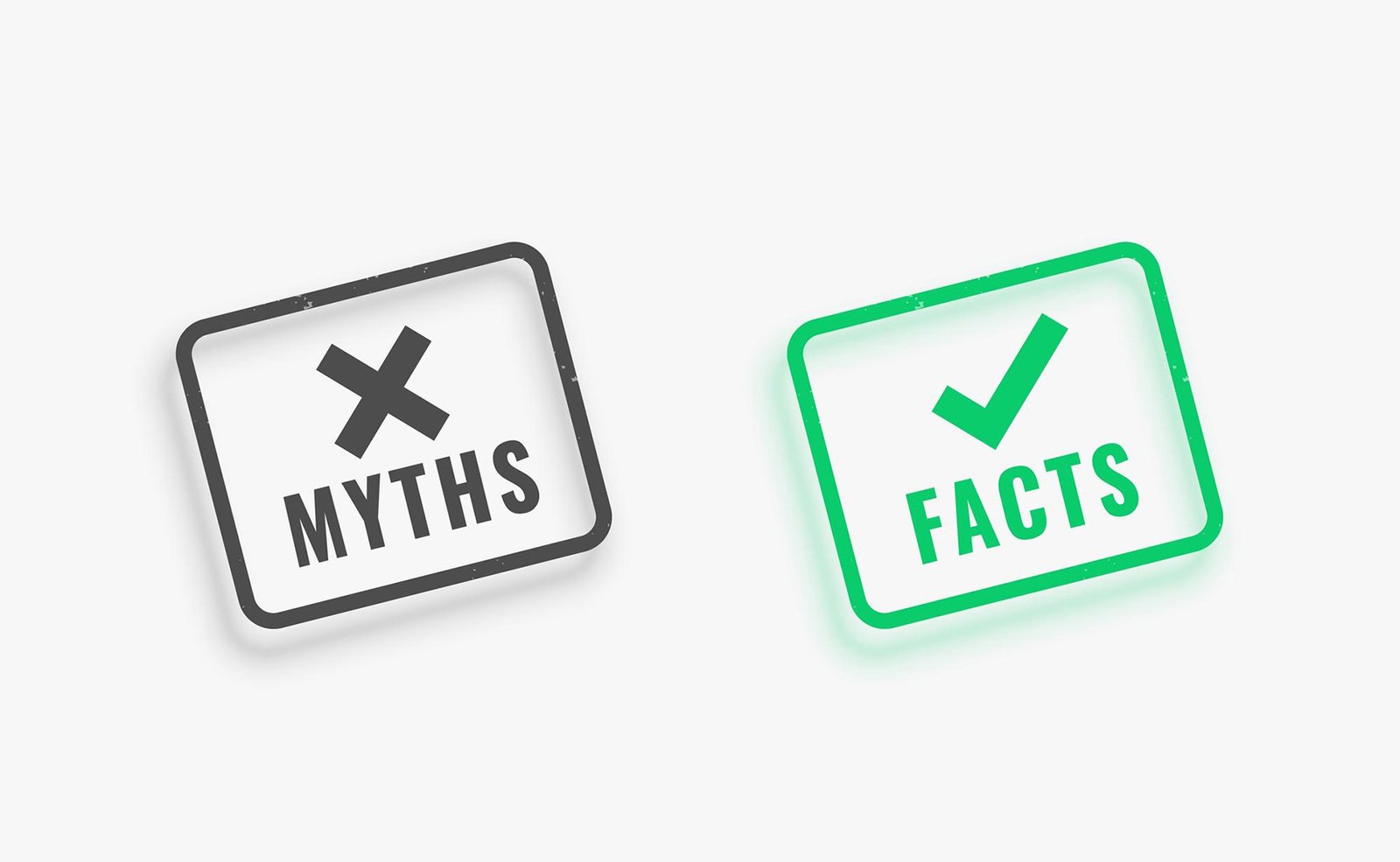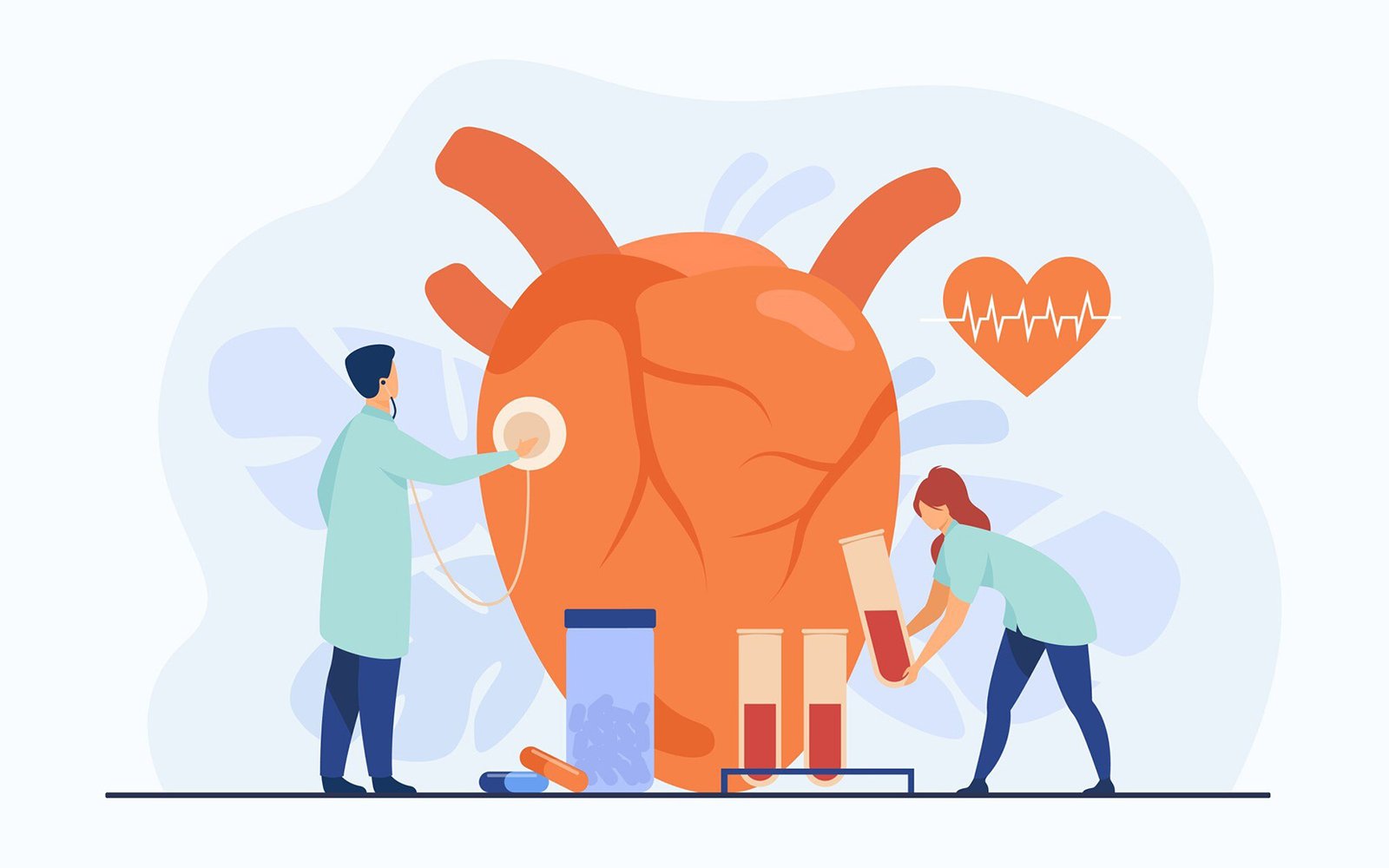
In the world of nutrition, it’s easy to get lost in the variety of diets that promise health benefits, weight loss, and overall wellness. This post will break down some of the most popular diets, including veganism, paleo, keto, and carnivore.
We’ll explore the potential benefits and drawbacks of each diet, including why a vegan diet might not be as healthy as commonly believed, and why the carnivore diet may be the optimal choice for many people.
And we’ll examine the myth surrounding high cholesterol and its relationship to heart disease, supported by current scientific evidence.
1. Vegan Diet: The Drawbacks of Plant-Based Eating
The vegan diet, while often celebrated for its ethical stance on animal rights and perceived environmental benefits, may not be as nutritionally balanced as some believe.
Many adopt veganism for its focus on plant-based foods, assuming that it’s inherently healthier, and although it can promote the reduction of LDL cholesterol and weight loss, the limitations of a vegan diet are significant when viewed through the lens of nutritional deficiencies and long-term sustainability within the human body.
Let’s break down the concerns.
Nutrient Deficiency Risks

While the vegan diet can be rich in fiber, antioxidants, and certain vitamins from plant sources, it lacks some crucial nutrients that are primarily found in animal products. Deficiencies in vitamin B12, iron, zinc, omega-3 fatty acids, and fat-soluble vitamins (A, D, E, K) can lead to a host of health problems over time.
- Vitamin B12 Deficiency: Vitamin B12, essential for brain health and the formation of red blood cells, is only naturally found in animal-based foods like meat, fish, and dairy. Vegans must rely on fortified foods or supplements, but these do not always provide adequate or easily absorbed forms of B12. Research published in the European Journal of Clinical Nutrition has shown that B12 deficiency in vegans can lead to irreversible neurological damage if not managed properly.
- Health Risks: Chronic B12 deficiency can lead to megaloblastic anemia, fatigue, cognitive decline, and even depression. Studies also suggest that long-term deficiency might contribute to neurological diseases like Alzheimer’s and dementia in later life.
- One key issue is absorption: While supplements can help prevent deficiency, B12 absorption requires several physiological steps that some people may struggle with, regardless of diet. This includes the need for sufficient gastric acid to separate B12 from food proteins, which can pose challenges for some, especially the elderly or those with digestive conditions. In fact, it’s noted that 43-88% of vegans may have low serum B12 levels, with potential risks for anemia and cognitive decline. Some forms of B12, such as those found in algae like chlorella, are less bioavailable, making them unreliable.
- Checking homocysteine levels: The concern with B12 absorption also highlights the importance of checking homocysteine levels, a marker linked to heart disease, especially for vegans. Elevated homocysteine can occur when B12 levels are insufficient. Therefore, while vegan diets have benefits, individuals on these diets should carefully monitor B12 intake and absorption.
- In contrast, B12 derived from animal products tends to be absorbed more efficiently since it is naturally present in protein-bound forms, though individuals with compromised digestion might still face absorption issues regardless of the source.
- Iron and Zinc Deficiency: While plant-based foods like lentils, spinach, and tofu contain iron, they provide non-heme iron, which is less bioavailable than heme iron found in meat. This means that the body absorbs it less efficiently. Zinc, essential for immune function and enzyme processes, is also more readily absorbed from animal sources. Vegan diets may lead to impaired growth, weakened immune systems, and increased susceptibility to infections.
- Omega-3 Fatty Acids: The omega-3s DHA and EPA, crucial for heart and brain health, are primarily found in fatty fish and certain animal products. While vegans can obtain ALA (a precursor to DHA and EPA) from flaxseeds and walnuts, the conversion rate to DHA and EPA is very low. As a result, many vegans may suffer from omega-3 deficiency, which can contribute to inflammation, poor cognitive function, and mood disorders.
Reliance on Soy Products
Many vegans rely heavily on soy-based foods such as tofu, tempeh, and soy milk as their primary protein source. While soy is high in protein, it contains phytoestrogens, which can mimic estrogen in the body and potentially disrupt hormonal balance over time.
- Hormonal Concerns: Studies on phytoestrogens have produced mixed results. Some suggest that high consumption of soy may negatively affect thyroid function and reproductive health. A study published in Environmental Health Perspectives highlighted potential links between phytoestrogens and thyroid disorders, particularly in people who are predisposed to hypothyroidism.
- Digestive Issues: Soy also contains anti-nutrients, such as phytic acid, which can impair the absorption of essential minerals like calcium, iron, and zinc. Over time, this can exacerbate the risk of nutrient deficiencies, especially for individuals with existing health concerns related to digestion.
The Protein Quality Debate
While many plant-based foods contain protein, the protein in plants is often incomplete, meaning it lacks one or more of the essential amino acids. Animal proteins, on the other hand, are “complete proteins,” providing all the amino acids the body needs. To achieve the same protein quality, vegans need to meticulously combine different plant foods, such as beans and rice, which can be challenging to maintain in the long term.
- Muscle Loss Risk: Inadequate protein intake over time can lead to muscle loss, especially in active individuals or older adults. Plant-based proteins, while helpful, are often lower in leucine, the key amino acid needed to trigger muscle protein synthesis. This puts vegans at a higher risk for sarcopenia, a condition involving age-related muscle loss.
- Digestive Sensitivity to Fiber: High reliance on plant-based foods can also lead to digestive discomfort due to excess fiber intake. While fiber is essential for gut health, many vegans may experience bloating, gas, and other gastrointestinal issues due to the high volume of fibrous vegetables and grains consumed daily.
Misconceptions Around the Ethical and Environmental Aspects

Many adopt veganism for its environmental and ethical concerns. However, studies have raised questions about whether plant-based diets are always the more environmentally sustainable option. The large-scale production of monocrops such as soy and almonds can lead to deforestation, soil degradation, and water scarcity.
- Impact of Monocropping: A study from Nature Sustainability points out that vegan staples like soy and grains often rely on industrial agriculture, which depletes soil quality and contributes to biodiversity loss. Additionally, plant-based alternatives may still have significant environmental costs.
- Human Welfare Concerns: Ethical concerns surrounding food production are not limited to animal welfare. The labor conditions in industries like soybean farming can also involve exploitation, further complicating the idea that veganism is inherently more ethical.
Long-Term Sustainability of Veganism
For many individuals, maintaining a vegan diet long-term can pose challenges, primarily due to the potential for nutrient deficiencies, such as vitamin B12, iron, and omega-3 fatty acids, which are harder to obtain from plant-based sources.
Additionally, some experience digestive discomfort from high reliance on fiber-rich foods and soy-based products, and a lack of dietary diversity can also lead to reliance on processed alternatives. Research has shown that some people who return to animal-based diets cite health concerns, such as fatigue and difficulty meeting nutritional needs, as key reasons for their decision.
Balancing Veganism with Supplementation
While it is possible to thrive on a vegan diet with careful planning and supplementation, doing so requires significant effort and knowledge. Supplements like B12, omega-3s, and iron are often necessary for vegans to maintain optimal health, but they don’t always fully replace the benefits of obtaining these nutrients from whole food sources.
2. Keto Diet: The First Step Toward a Healthier You

The ketogenic (keto) diet has gained immense popularity in recent years, and for good reason. The keto diet focuses on reducing carbohydrate intake to a minimum (usually below 50 grams per day) while increasing fat consumption and keeping moderate protein levels. This dietary shift forces the body to enter a metabolic state called ketosis, where it burns fat for energy instead of carbohydrates.
While many turn to one of the keto diet benefits of weight loss, it goes beyond shedding pounds. Here’s a comprehensive look at why keto is a solid first step for those looking to improve their overall health and why it’s the perfect precursor to a carnivore diet.
How the Keto Diet Benefits Work
When the body is deprived of carbohydrates, its preferred energy source, it begins to break down stored fat into molecules called ketones. These ketones are then used by the body as a primary fuel source, especially in the brain, which can adapt well to ketone metabolism.
- Ketosis and Fat Burning: Achieving ketosis usually takes between 2-4 days of carbohydrate restriction. Once in ketosis, the body becomes highly efficient at burning fat for energy, leading to a significant reduction in fat mass. For many, the rapid fat loss is one of the most attractive benefits of keto, but the metabolic benefits go even further.
- Stabilized Blood Sugar Levels: The drastic reduction in carbohydrate intake prevents insulin spikes and blood sugar crashes, which is beneficial for individuals with type 2 diabetes or insulin resistance. Studies published in the Journal of Clinical Investigation have shown that a ketogenic diet can improve insulin sensitivity, reduce inflammation, and promote long-term glycemic control.
- Appetite Regulation: One of the key benefits of the keto diet is its ability to naturally suppress appetite. This effect occurs due to the stabilizing impact on blood sugar and insulin, as well as increased satiety from high-fat foods. A study in Nutrients found that individuals on a ketogenic diet reported significantly lower hunger levels compared to those on low-fat or traditional calorie-restricted diets.
The Transition to Carnivore: Why Keto First?
Many people find the ketogenic diet to be an excellent stepping stone before transitioning to a full carnivore diet. The carnivore diet is a more restrictive variation of keto, where all plant foods are eliminated, and the diet consists exclusively of animal-based products such as meat, eggs, and animal fats. Here’s why starting with keto makes sense:
- Fat Adaptation: On a keto diet, your body becomes fat-adapted, meaning it becomes efficient at burning fat for energy. This adaptation is crucial when transitioning to the carnivore diet, which lacks carbohydrates entirely. Individuals who move directly from a high-carb diet to carnivore often struggle with keto flu, a series of flu-like symptoms that result from carb withdrawal. Starting with keto can prevent this by allowing the body to adjust to low-carb, high-fat eating before going full carnivore.
- Metabolic Flexibility: Keto teaches your body to become metabolically flexible, meaning it can switch between burning carbs and fats efficiently. This flexibility is key for those who want to experience the full benefits of the carnivore diet without the initial energy dips or cravings that can occur in the absence of carbs.
- Mental Clarity and Cognitive Function: Both the keto and carnivore diets are known for their positive effects on mental clarity and cognitive function. Many people report enhanced focus, improved mood, and better productivity on a ketogenic diet, largely due to the brain’s ability to thrive on ketones. This benefit extends further into the carnivore diet, where eliminating plant-based irritants and focusing solely on animal-based nutrition can sharpen mental clarity even more.
Cholesterol Myths: The Keto Diet and Heart Disease

One of the biggest misconceptions surrounding the keto and carnivore diets is the fear of high cholesterol and its supposed connection to heart disease. However, recent research challenges this long-held belief, offering a new perspective on cholesterol’s role in overall health.
- Cholesterol and Heart Disease: The idea that dietary cholesterol directly leads to heart disease was based on outdated research from the mid-20th century. However, newer studies, such as one published in the British Journal of Sports Medicine, have shown that there is no clear evidence linking dietary cholesterol or saturated fat intake to an increased risk of heart disease in healthy individuals. In fact, the body tightly regulates cholesterol levels, and for many people, dietary cholesterol has little impact on blood cholesterol levels.
- LDL vs. HDL: When discussing cholesterol, it’s important to differentiate between low-density lipoprotein (LDL) and high-density lipoprotein (HDL). While LDL is often labeled as “bad” cholesterol, not all LDL particles are harmful. Small, dense LDL particles are more likely to contribute to heart disease, whereas large, fluffy LDL particles are relatively benign. The keto diet has been shown to raise HDL levels (the “good” cholesterol) and shift LDL particles from small and dense to large and fluffy, thus reducing cardiovascular risk.
- Saturated Fats: Saturated fats, long vilified as a contributor to heart disease, are actually an essential component of a healthy diet. They provide a stable source of energy, help with the absorption of fat-soluble vitamins, and are necessary for hormone production. A review published in the American Journal of Clinical Nutrition found no association between saturated fat intake and heart disease, concluding that the focus should instead be on reducing inflammation and improving overall metabolic health.
Other Health Benefits of Keto
The benefits of the ketogenic diet extend beyond fat loss and blood sugar control. Here are a few additional ways keto can positively impact your health:
- Reduced Inflammation: The keto diet has been shown to reduce systemic inflammation, a major driver of chronic diseases such as heart disease, cancer, and autoimmune conditions. By cutting out high-glycemic carbohydrates and processed foods, the keto diet lowers inflammatory markers, which can lead to better overall health.
- Improved Endurance and Physical Performance: Keto-adapted individuals often report improved endurance and stamina during physical activities. This is because fat provides a more sustained and efficient energy source compared to carbohydrates, which burn quickly. Research published in Metabolism: Clinical and Experimental shows that athletes on a ketogenic diet can experience enhanced endurance without the need for carb-loading before events.
- Epilepsy and Neurological Benefits: The ketogenic diet was originally developed as a treatment for epilepsy in the early 20th century and continues to be a highly effective therapy for managing seizures, particularly in children. Additionally, emerging research suggests that the keto diet may have protective effects against neurodegenerative diseases like Alzheimer’s and Parkinson’s.
A helpful and well reviewed book on Amazon is Keto Meal Prep by FlavCity.
3. Paleo Diet – Bridging the Gap Between Keto and Carnivore

The Paleo diet is another significant player in the world of special diets, gaining popularity due to its focus on whole, unprocessed foods. Often considered an evolutionary approach to eating, the Paleo diet aims to mimic the diet of our Paleolithic ancestors, focusing on foods that were available before modern agriculture—think meat, fish, vegetables, fruits, and nuts, while excluding grains, legumes, dairy, and processed foods.
While the Paleo diet is often seen as less restrictive than keto or carnivore, it provides a solid foundation for those looking to transition from the standard Western diet to a more whole-food, nutrient-dense approach. Here’s a deeper dive into the Paleo diet and how it can serve as a bridge between keto and carnivore.
How the Paleo Diet Works
At its core, the Paleo diet promotes eating foods that were presumably consumed by early humans. The idea is that modern agriculture and processed foods have introduced elements into our diets that our bodies are not adapted to, leading to various health issues such as obesity, diabetes, and heart disease.
Key components of the Paleo diet include:
- Protein and Animal-Based Foods: Like keto and carnivore, the Paleo diet prioritizes animal-based foods such as meat, fish, and eggs. Animal protein is emphasized because of its bioavailability (meaning the body can easily digest and absorb it) and its role in muscle growth, tissue repair, and overall energy.
- Healthy Fats: Paleo encourages the consumption of natural fats, particularly those found in meat, fish, avocados, and certain oils like olive and coconut. These fats are considered healthier than processed vegetable oils, which are linked to inflammation and other health issues. Unlike keto, however, Paleo does not encourage high fat intake but instead advocates a balanced consumption of protein and fat.
- Vegetables and Fruits: The Paleo diet includes non-starchy vegetables and low-sugar fruits like berries as a source of fiber, vitamins, and antioxidants. This aligns it more with the keto diet, as these foods are naturally low in carbohydrates.
- Elimination of Processed Foods and Grains: A key aspect of Paleo is the complete avoidance of processed foods, refined sugars, grains (like wheat and rice), and legumes (such as beans and peanuts). These foods are excluded due to their anti-nutrient properties, such as phytates and lectins, which can interfere with nutrient absorption. Paleo dieters believe that these modern foods can cause inflammation and digestive issues.
Paleo’s Nutritional Benefits
The Paleo diet offers several health benefits that can serve as a stepping stone for those looking to transition into keto or carnivore diets:
- Weight Loss: Because Paleo emphasizes high-protein and low-carbohydrate foods, it naturally supports weight loss. Numerous studies, including those published in Obesity Reviews and The European Journal of Clinical Nutrition, have shown that people on the Paleo diet tend to lose more weight and abdominal fat than those on traditional low-fat diets.
- Reduced Inflammation: The avoidance of processed foods, refined sugars, and grains can significantly reduce inflammation, which is linked to a variety of chronic diseases like diabetes, heart disease, and autoimmune disorders. A study in The Journal of Nutrition found that individuals on the Paleo diet had lower markers of systemic inflammation compared to those on a typical Western diet.
- Improved Blood Sugar Control: Paleo’s elimination of refined carbohydrates and sugar helps stabilize blood sugar levels. Research published in The American Journal of Clinical Nutrition has shown that the Paleo diet improves insulin sensitivity, making it beneficial for those with type 2 diabetes or pre-diabetes. This parallels many of the benefits of keto, making Paleo an excellent starting point for those looking to reduce their carbohydrate intake.
- Improved Gut Health: By avoiding grains and legumes, which contain anti-nutrients like lectins and phytates, the Paleo diet promotes better gut health. These anti-nutrients can cause intestinal inflammation and hinder the absorption of essential minerals. Paleo’s emphasis on fiber-rich vegetables and fermented foods further supports healthy gut flora and digestion.
Transitioning from Paleo to Keto and Carnivore
The Paleo diet offers a less restrictive approach to low-carb eating than keto or carnivore, but it shares many of the same principles. This makes it a natural stepping stone for those considering a move to a more restrictive eating plan like keto or carnivore.
- Lowering Carb Intake Gradually: While Paleo doesn’t specifically limit carbs, it encourages the consumption of low-glycemic foods like vegetables and some fruits. This gradual reduction in carbohydrate intake can help ease the transition into ketosis, making the switch to keto less of a shock to the system. For many, the Paleo diet is a softer introduction to the idea of eating fewer carbs without the strict macronutrient tracking required in keto.
- Sustainability and Flexibility: Paleo allows for more variety and flexibility, which can be appealing for beginners or those who may feel restricted by the keto or carnivore diets. However, once people experience the benefits of a low-carb, high-protein diet on Paleo, many are motivated to explore the more powerful fat-burning and anti-inflammatory effects of keto and carnivore.
- Paleo and Cholesterol: One of the misconceptions surrounding diets rich in animal fats, like Paleo and keto, is their potential impact on cholesterol and heart disease. However, studies published in the journal Nutrition Research have shown that the Paleo diet, which emphasizes healthy fats from animals and natural sources, can improve cholesterol profiles. Like keto, Paleo has been found to increase HDL (good cholesterol) and decrease triglycerides, both markers of improved cardiovascular health. This challenges the outdated view that dietary cholesterol and saturated fat are directly linked to heart disease.
- Mental and Cognitive Benefits: Like keto and carnivore, Paleo can also improve mental clarity, mood, and energy levels. The elimination of processed foods, grains, and sugars helps stabilize blood sugar, reducing energy crashes and brain fog. For many, Paleo provides a mental clarity boost, which is further amplified by transitioning to keto and carnivore, where the brain begins to thrive on ketones for fuel.
The Criticism of Paleo: Is It Sustainable Long-Term?
While the Paleo diet offers numerous health benefits, it does have some criticisms, particularly regarding its sustainability and restrictions on certain food groups. Some experts argue that by eliminating entire food categories like grains, legumes, and dairy, Paleo may lead to nutrient deficiencies over time if not carefully managed. For example, legumes are an important source of plant-based protein and fiber, and their exclusion can limit dietary variety.
However, proponents of Paleo argue that the diet focuses on nutrient-dense foods like meat, fish, vegetables, and fruits, which can provide all the necessary vitamins and minerals. Additionally, those who move from Paleo to keto or carnivore often report enhanced health benefits, making it a viable short- to medium-term approach to better eating habits.
4. The Carnivore Diet – Embracing Animal-Based Nutrition for Optimal Health

The carnivore diet, often referred to as a zero-carb or all-meat diet, is one of the most restrictive dietary approaches, focusing solely on animal-based foods. This includes meat, fish, eggs, and animal fats, while excluding all plant-based foods. At first glance, the carnivore diet may seem extreme, but a growing body of research and anecdotal evidence suggests that it can offer numerous health benefits, particularly for those struggling with chronic inflammation, autoimmune conditions, or metabolic disorders.
Let’s dive deeper into how the carnivore diet works, its potential benefits, and the scientific evidence supporting this animal-based approach to nutrition.
How the Carnivore Diet Works
The carnivore diet eliminates all carbohydrates by restricting food intake to animal products, emphasizing protein and fat as the primary energy sources. Unlike keto, which allows for some plant-based foods (like non-starchy vegetables), and Paleo, which includes fruits and nuts, carnivore excludes everything except animal products. The premise behind this diet is that humans evolved as hunters, relying on animal-based foods for the majority of their existence.
By removing carbohydrates and fiber from the diet, carnivore forces the body to enter a state of ketosis, where fat is used as the primary fuel source. This is similar to the keto diet, but carnivore takes it a step further by promoting fat as the only energy source, eliminating potential irritants and anti-nutrients found in plants.
Key components of the carnivore diet include:
- Meat and Organ Meat: The foundation of the carnivore diet is meat, particularly fatty cuts from ruminant animals like beef, lamb, and bison. Organ meats (like liver and kidney) are encouraged due to their dense nutrient profile, providing essential vitamins and minerals that support overall health.
- Fat: Animal fat plays a significant role in the carnivore diet, serving as the body’s primary source of energy. Foods like beef tallow, lard, and fatty cuts of meat are prioritized to maintain a high fat-to-protein ratio, which ensures sustained energy levels and satiety.
- Dairy (optional): Some versions of the carnivore diet allow limited dairy intake, such as cheese, butter, and cream, provided it is well-tolerated. However, strict carnivores often avoid dairy to minimize potential inflammation or intolerance to lactose and casein.
Health Benefits of the Carnivore Diet

While the carnivore diet is often considered controversial due to its restrictive nature, many adherents report significant improvements in their health, particularly those suffering from chronic conditions. Here are some of the most commonly reported benefits:
- Reduced Inflammation: Inflammation is the root cause of many chronic diseases, including arthritis, cardiovascular disease, and autoimmune disorders. By eliminating plant-based foods that contain potential irritants such as lectins, oxalates, and phytates, the carnivore diet can significantly reduce inflammation. Many people with autoimmune conditions like rheumatoid arthritis or Crohn’s disease report dramatic improvements in their symptoms after adopting a carnivore lifestyle. Studies published in Nutrients and The American Journal of Clinical Nutrition have shown that low-carbohydrate diets rich in animal fats can reduce markers of systemic inflammation.
- Improved Mental Health and Cognitive Function: The carnivore diet may improve mental clarity, mood stability, and cognitive function. By removing carbohydrates and relying on fat for fuel, the brain becomes more efficient at using ketones, leading to enhanced focus and reduced brain fog. Anecdotal evidence from proponents like Dr. Shawn Baker and Mikhaila Peterson suggests that individuals suffering from depression, anxiety, and even ADHD have found relief through the carnivore diet.
- Weight Loss and Body Composition: One of the most common reasons people turn to the carnivore diet is for weight loss. The elimination of carbohydrates forces the body to burn fat for energy, leading to rapid fat loss while preserving lean muscle mass. Additionally, the high protein intake on the carnivore diet boosts satiety and reduces hunger, making it easier to adhere to the diet without calorie counting. Studies have shown that high-protein, low-carb diets can lead to significant fat loss, as published in The American Journal of Clinical Nutrition.
- Gut Health and Digestive Issues: Many people find that the carnivore diet helps resolve gut issues such as bloating, constipation, or irritable bowel syndrome (IBS). While it might seem counterintuitive to eliminate fiber from the diet, many carnivores report improved digestion due to the elimination of plant fibers, which can be difficult for some people to digest. Research in the journal Advances in Nutrition has indicated that a low-fiber diet can benefit individuals with specific digestive conditions, as it reduces gut irritation and allows for faster healing of the intestinal lining.
- Blood Sugar Regulation and Insulin Sensitivity: Similar to keto, the carnivore diet can improve blood sugar control and enhance insulin sensitivity by eliminating carbohydrates. This makes it an excellent option for those with type 2 diabetes, metabolic syndrome, or pre-diabetes. In another study published in Advances in Nutrition found that very low-carb, high-protein diets improved insulin sensitivity and reduced the need for medication in individuals with diabetes.
Why Carnivore is the Next Step After Keto
For those who have experienced success on the keto diet but are looking for further health benefits or relief from chronic conditions, the carnivore diet can be the next logical step. Since both diets rely on ketosis for energy, transitioning from keto to carnivore is a relatively easy process that requires only the elimination of plant foods. This shift can provide additional benefits, such as:
- Simplified Eating: By focusing exclusively on animal products, the carnivore diet eliminates the need for complicated meal planning or macronutrient tracking. This simplicity can make it easier for individuals to adhere to the diet long-term, as they only need to focus on eating high-quality meats and fats.
- Fewer Digestive Issues: Some individuals on keto still experience digestive problems due to the inclusion of plant-based foods like vegetables or nuts. By eliminating all plant foods, the carnivore diet can resolve lingering digestive issues, leading to better gut health.
- Further Fat Loss and Muscle Gains: Because the carnivore diet emphasizes protein and fat, it supports muscle growth and fat loss even more effectively than keto. The higher protein intake on carnivore promotes muscle repair and growth, while the absence of carbohydrates encourages the body to burn fat for fuel.
Cholesterol and Heart Disease: Debunking the Myth

One of the most common criticisms of the carnivore diet is its high intake of saturated fat and cholesterol. For decades, saturated fat has been linked to heart disease, with recommendations to limit red meat and animal fats in favor of vegetable oils and grains. However, recent research has begun to challenge this long-held belief, showing that dietary cholesterol and saturated fat are not the primary drivers of heart disease.
A review published in the journal Circulation revealed that there is no significant association between dietary cholesterol and the risk of heart disease. Moreover, other studies have shown that saturated fat raises HDL (good) cholesterol and alters LDL particles to a less harmful form, reducing the risk of cardiovascular issues. On the carnivore diet, many individuals experience improved lipid profiles, with lower triglycerides and higher HDL levels, both of which are protective against heart disease. Dr. Wallach even goes on to say that the only difference between HDL and LDL cholesterol is LDL is oxidized which is the only reason it causes issues.
The carnivore diet’s emphasis on high-quality animal fats from grass-fed meats and fatty fish provides essential fatty acids that support heart health, contrary to the outdated notion that all fats are harmful. Modern research continues to debunk the myth that a diet rich in animal fats leads to heart disease, instead showing that a whole-food-based, high-fat diet can improve overall cardiovascular health.
- The Role of Cholesterol in the Body
Cholesterol is essential for various biological functions, including the production of hormones, vitamin D, and cell membranes. There are two main types of cholesterol: LDL (often referred to as “bad” cholesterol) and HDL (high-density lipoprotein, or “good” cholesterol). While high levels of LDL have been traditionally linked to heart disease, HDL is believed to help remove excess cholesterol from the blood, thereby reducing the risk of cardiovascular issues. However, cholesterol itself is not inherently harmful—it is only when LDL becomes oxidized that it can contribute to the buildup of plaque in the arteries. - The Shift in Understanding
A growing body of evidence challenges the simplistic narrative that high total cholesterol levels automatically lead to heart disease. For instance, a 2018 review published in the Expert Review of Clinical Pharmacology suggested that the cholesterol hypothesis was flawed. It found that older people with high LDL cholesterol often lived longer than those with lower levels, questioning the causal link between cholesterol and heart disease.
Moreover, a meta-analysis from the BMJ in 2016 highlighted that there is little evidence to suggest that high cholesterol is a significant risk factor for cardiovascular mortality in the elderly. In fact, in many cases, higher cholesterol levels were associated with lower all-cause mortality.
- Inflammation, Not Cholesterol, as a Primary Driver
A key area of focus in recent research is inflammation. Many scientists now believe that chronic inflammation, rather than cholesterol itself, is the primary contributor to the development of atherosclerosis. Inflammation can damage blood vessel walls, allowing cholesterol to infiltrate and form plaques. The importance of diet, stress, smoking, and other lifestyle factors on inflammation is becoming clearer, with some experts now suggesting that targeting inflammation, rather than cholesterol, may be a more effective strategy for preventing heart disease. - Dietary Cholesterol and Saturated Fats
For years, people were advised to reduce dietary cholesterol and saturated fats to lower heart disease risk. However, several large studies have since found no significant correlation between dietary cholesterol intake and heart disease in the general population. For instance, a 2020 study in the Journal of American Heart Association found that eating eggs, a food high in cholesterol, did not raise the risk of or all cause mortality or heart disease in healthy individuals. Similarly, the Journal of the American College of Cardiology published research in 2020 arguing that there was insufficient evidence to recommend against the consumption of foods high in saturated fats, like red meat and butter, for most people. - The Carnivore Diet and Cholesterol
Advocates of the carnivore diet often point to the fact that many people who follow this way of eating experience improvements in cholesterol markers. Some studies on low-carbohydrate, high-fat diets (such as keto and carnivore) have shown increases in HDL and decreases in triglycerides, both of which are associated with a lower risk of heart disease. While LDL levels may increase in some individuals, this may not necessarily indicate a higher risk, especially if it is associated with larger, less dense particles, which are considered less harmful.
The relationship between cholesterol and heart disease is much more nuanced than originally thought. While cholesterol levels can be an important factor in cardiovascular health, focusing solely on LDL cholesterol might overlook other critical factors like inflammation, diet quality, and overall lifestyle.
Eating a diet rich in nutrient-dense animal products, as found in the carnivore diet, may have benefits that go beyond simply managing cholesterol levels. However, as with any diet, individual responses can vary, and it’s essential to monitor one’s health and consult with healthcare professionals regularly.
Conclusion

For many, starting with keto is a great way to ease into a high-fat, low-carb lifestyle. Once your body has adapted to burning fat for fuel, transitioning to a carnivore diet can offer even greater health benefits, including reduced inflammation, improved mental clarity, and better digestion. While the vegan diet may work for some people, animal-based nutrition provides essential nutrients in their most bioavailable forms, supporting optimal health. And of carnivore is too much for you, Paleo is the next best thing.
Be advised that experts like Dr. Wallach would suggest that getting supplementation, even when eating Paleo, is still 100% necessary for longevity for everyone – and especially Vegans.
Eating a diet rich in high-quality meats and animal fats is no longer seen as detrimental. Instead, it’s now viewed as a path to robust health, free from the chronic diseases associated with high-carbohydrate, processed food diets. By reconsidering cholesterol’s role in heart disease and embracing the power of animal-based eating, you can unlock a new level of well-being supported by the latest research.
Disclaimer: For Your Health and Safety
Remember, the information provided in this blog post is for educational purposes only and should not be considered medical advice. Always consult with a healthcare provider or registered dietitian before making any significant changes to your diet, especially if you have underlying health conditions.



